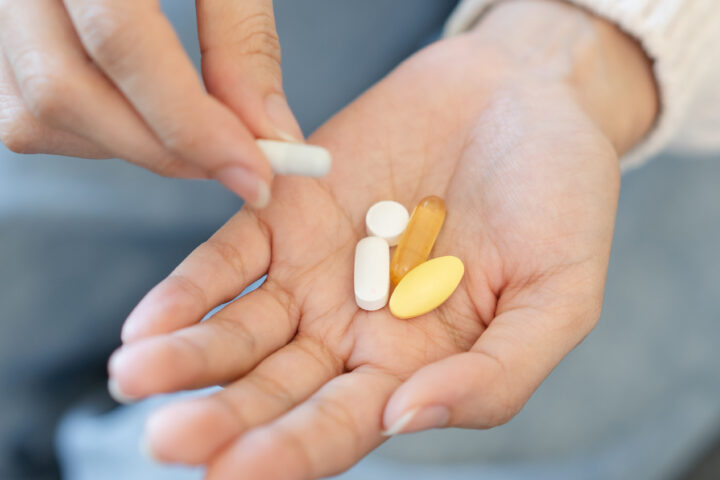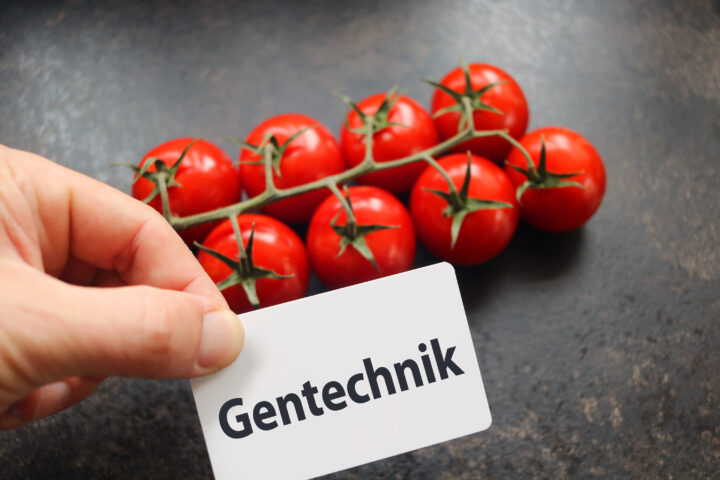
Consumption of organic meat declining
The Swiss are eating less and less meat that is marked with a special label. At the same time, per capita consumption of meat is increasing again for the first time in a long time. This is the result of an analysis by Swiss Animal Welfare (STS).
Monday, June 27, 2022
During the corona pandemic, sales of organic products have risen to new heights. Swiss consumers bought more organic food than ever before. However, as the “Tages-Anzeiger” writes in relation to label statistics from Swiss animal protection, sales of organic and other label meat have fallen in recent years. Specifically, the proportion of label meat compared to conventional beef products fell from 36.6 percent to 31.9 percent between 2020 and 2021 - that's almost five percent. A similar decrease can be seen for pork. The proportion of animal welfare products fell from 35 to 30.5 percent in the same period. Chicken production with a label remains at eight percent - although the Swiss now consume around twice as much chicken as they did 40 years ago.
Label products up to twice as expensive
The proportion of labeled animals compared to all animals slaughtered in Switzerland was twelve percent in 2021. That is a drop of 0.2 percent compared to 2020. According to Stefan Flückiger, co-head of the STS, we are currently dealing with an “animal welfare crisis”. The dramatization is probably taking place with a view to the vote on the factory farming initiative next autumn. Animal protection therefore assumes that farmers who do not use label production do not keep their animals in a species-appropriate manner. However, this claim hardly stand up to reality. Animal protection believes the decline in the consumption of label meat is primarily explained by the prices. In some cases, a label product costs almost twice as much as meat from conventional production. According to Flückiger, consumers have become more price-sensitive during the corona pandemic. Economist Mathias Binswanger provides a supplementary explanation according to the “Tages-Anzeiger”. Retailers such as Migros and Coop are using their market power to drive up prices for premium customers. When it comes to conventional meat, however, they are engaged in a bitter price war.
Price as the most important factor
Although the desire for animal-friendly husbandry is widespread among Swiss consumers, the world is not black and white. The renunciation of a label cannot be equated with animal cruelty. Price ultimately plays a decisive role. One study by the research institute Agroscope from 2020 shows that a major lever for increasing sales of organic meat is indeed price. According to the study, sales of organic beef could be increased by 50 percent if the price were to drop by 20 percent. Sales of organic pork could even be increased by 60 percent. In addition to retailers, the STS also attributes responsibility to the catering industry. They must ensure more animal welfare products are on the menu. According to the “Tages-Anzeiger”, however, the industry warns against drawing conclusions that are too simple. Conventional meat or meat from abroad does not automatically mean that less attention is paid to animal welfare.
Blindspot article
Lab-grown meat?
As an alternative to producing meat on the farm, could soon come from the laboratory. In Israel in particular, various start-up companies are working on growing meat from stem cells in the laboratory. Taste, texture, etc. are convincing, but the problem still lies in scalability: There are usually only pilot facilities, as the NZZ writes. Only when production on a larger scale is possible will the prices for laboratory meat drop. Consumer acceptance will be important, but we all have to get used to the fact that food from the bioreactor can be sustainable due to the global scarcity of resources. What is clear: Innovative technologies will be essential for comprehensively sustainable nutrition. They will also contribute to even more sustainable animal husbandry - if allowed. Animal husbandry will always play a role in agriculture because of fertilizer production and the closing of cycles. This applies to regenerative agriculture but even more so to organic agriculture, which lacks fertilizer if there are no animals.
Related articles

Residue is not the same as residue
Painkillers like Voltaren are a blessing for us – yet in our rivers they can harm fish. If these were crop protection products, calls for bans would be immediate. It becomes clear that we are applying double standards.

ARTE documentary: Genetic engineering in organic farming?
The ARTE documentary “Genetic engineering in organic farming?” examines key controversial questions of modern agriculture: Is the general exclusion of new breeding technologies still up to date? Can the resistance of organic farming be justified scientifically?

The Great Suffering of Farmers
Fire blight, Japanese beetles, or grapevine yellows – farmers in Valais, too, are increasingly feeling helpless in the face of the threats posed by nature. More and more often, they lack the means to effectively protect their crops. This makes it all the more important for the Federal Council to place a pragmatic balancing of interests at the forefront when setting threshold values.

'Tomatoes on your eyes'
The submitted “Food Protection Initiative” calls for “GMO-free food.” Leaving aside this illusory demand, its adoption would mean more bureaucracy, more trade barriers, and less innovation. The Swiss Farmers’ Union describes the proposal as “unnecessary” and warns of a setback to the goal of achieving an even more sustainable agriculture.

